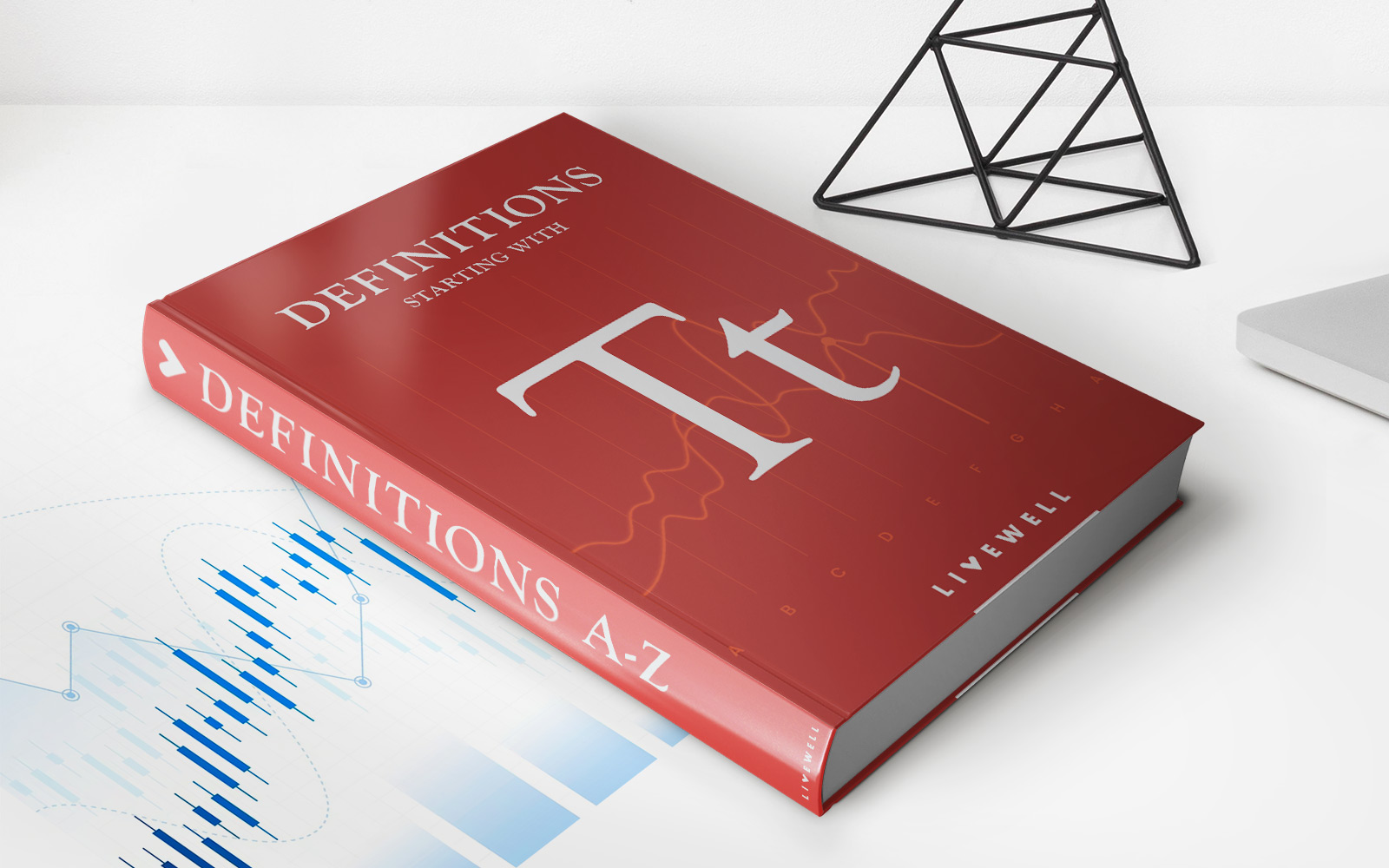

Finance
What Is A Home Equity Investment?
Published: October 17, 2023
Learn all about home equity investments and how they can help you finance your goals. Explore the benefits and possibilities today.
(Many of the links in this article redirect to a specific reviewed product. Your purchase of these products through affiliate links helps to generate commission for LiveWell, at no extra cost. Learn more)
Table of Contents
- Introduction
- Understanding Home Equity Investments
- How Home Equity Investments Work
- Pros and Cons of Home Equity Investments
- Comparison with Traditional Home Equity Loans
- Factors to Consider Before Getting a Home Equity Investment
- Home Equity Investment vs. Home Equity Line of Credit
- Home Equity Investment: Is it Right for You?
- Conclusion
Introduction
Welcome to the world of home equity investments! If you’re a homeowner looking for a way to leverage the value of your property, then you’ve come to the right place. Home equity investments offer a unique opportunity to tap into the equity you’ve built in your home, providing you with funds for various purposes.
So, what exactly is a home equity investment? Put simply, it is a financial arrangement that allows you to receive a lump sum or regular payments in exchange for a share of the future appreciation in the value of your home. Unlike a traditional home equity loan or line of credit, a home equity investment doesn’t require monthly payments or accrue interest.
For many homeowners, their primary residence is one of their largest assets, and home equity investments give them the chance to unlock the value of that asset without having to sell or take on additional debt. Whether you’re looking to renovate your home, start a business, fund your child’s education, or simply have a financial cushion for unexpected expenses, a home equity investment could be the solution you’ve been seeking.
In this article, we will delve into the world of home equity investments, exploring how they work, their pros and cons, and how they compare to traditional home equity loans. We will also discuss the factors you should consider before getting a home equity investment and whether it’s the right financial strategy for you.
So, sit back, grab a cup of coffee, and let’s embark on this exciting journey into the world of home equity investments!
Understanding Home Equity Investments
Before delving into the specifics of how home equity investments work, it’s important to have a clear understanding of what they actually are. A home equity investment is a financial agreement where an investor provides you with funds in exchange for a percentage of the future appreciation in the value of your home.
Unlike a traditional home equity loan or line of credit, where you borrow against the equity you have built in your home and make regular payments with interest, a home equity investment is not a loan. Instead, it is an equity transaction, where the investor becomes a co-owner or partner in your property.
The investor’s return on investment comes in the form of a share of the appreciation in your home’s value. This means that if the value of your home increases over time, the investor will receive a portion of that appreciation when you sell the property or at the end of the agreed-upon investment term.
It’s important to note that home equity investments are typically available for primary residences and sometimes for secondary homes. Investment properties, vacation homes, and rental properties may not be eligible for this type of financing.
Home equity investments are an innovative alternative for homeowners who want to access their home equity without taking on additional debt. They provide a way to unlock the value of your home while sharing the potential upside with an investor.
Next, let’s explore how exactly home equity investments work and the key factors to consider before entering into such an arrangement.
How Home Equity Investments Work
Now that we have a basic understanding of what home equity investments are, let’s dive into how they actually work. The process of obtaining a home equity investment typically involves the following steps:
- Evaluation: The first step is to determine the current market value of your home. This may involve getting a professional appraisal or using online tools to estimate the value.
- Agreement: Once the value of your home is established, you can enter into an agreement with an investor. This agreement will outline the terms of the investment, including the amount of funds you will receive and the percentage of future appreciation the investor will be entitled to.
- Funding: After the agreement is made, the investor will provide you with the agreed-upon funds. This can be in the form of a lump sum or regular payments, depending on the terms of the investment.
- Ownership: With a home equity investment, the investor becomes a co-owner or partner in your property. However, unlike a traditional joint ownership, the investor does not have the right to live in the property or make any decisions regarding it. They simply have a financial stake in its future value.
- Appreciation Sharing: As the value of your home appreciates over time, the investor will be entitled to a share of that appreciation. This is typically determined by the agreed-upon percentage in the initial agreement. The exact timing of the investor’s payout will depend on whether you sell the property or at the end of the investment term.
- Exit Strategy: It’s important to have an exit strategy in place when entering into a home equity investment. This could involve selling the property, refinancing, or buying out the investor’s share. The specific details will be outlined in the agreement.
One of the key advantages of home equity investments is that they do not require monthly payments. Unlike a traditional home equity loan, where you have to make regular payments with interest, a home equity investment allows you to access funds without the burden of additional debt. This can be particularly beneficial for homeowners who have limited income or want to preserve their cash flow for other purposes.
Now that we have a better understanding of how home equity investments work, let’s explore the pros and cons of this financing option.
Pros and Cons of Home Equity Investments
Like any financial decision, home equity investments come with their own set of advantages and disadvantages. It’s important to carefully consider these pros and cons before deciding if a home equity investment is the right choice for you. Let’s explore both sides of the equation:
Pros:
- No Monthly Payments: One of the biggest advantages of home equity investments is that they do not require monthly payments. Unlike a traditional loan or line of credit, you don’t have to worry about making repayments, which can free up your cash flow for other purposes.
- No Interest Accrual: Since home equity investments are not loans, they do not accrue interest. This can save you a significant amount of money over time compared to traditional home equity loans, where interest can accumulate over the life of the loan.
- Flexible Use of Funds: With a home equity investment, you have the freedom to use the funds for any purpose you choose. Whether it’s home renovations, debt consolidation, starting a business, or funding educational expenses, the decision is entirely up to you.
- Potential for Appreciation Sharing: Home equity investments allow you to share in the appreciation of your home’s value with the investor. If the value of your property increases over time, both you and the investor can benefit from the financial upside.
- No Additional Debt: Unlike a traditional loan or line of credit, a home equity investment doesn’t add to your existing debt load. This can be advantageous for homeowners who want to access their home equity without taking on additional financial obligations.
Cons:
- Reduced Future Equity: By entering into a home equity investment, you are giving up a portion of your future equity in the property. If the value of your home appreciates significantly, you will have to share the profits with the investor.
- Higher Costs in the Long Run: While home equity investments don’t require monthly payments or accrue interest, the potential cost can be higher in the long run compared to a traditional loan. This is because you’re sharing a portion of the future appreciation with the investor.
- Limited Investment Options: Not all homeowners may qualify for a home equity investment, as it depends on factors such as your creditworthiness and the value of your property. This can limit your investment options, especially if your property has limited appreciation potential.
- Exit Strategy Complexity: Having a clear exit strategy is crucial when entering into a home equity investment. Determining when and how to buy out the investor’s share or sell the property can be more complex compared to simply paying off a traditional loan.
- Sharing Financial Upside: While sharing in the appreciation of your home’s value can be a benefit, it also means that you won’t be able to fully capitalize on the entire appreciation potential. You will have to share the financial upside with the investor.
Now that we’ve weighed the pros and cons of home equity investments, let’s compare them to traditional home equity loans to better understand the differences.
Comparison with Traditional Home Equity Loans
When considering financing options that leverage the equity in your home, it’s important to understand how home equity investments compare to traditional home equity loans. While both options provide access to your home’s equity, there are key differences that can impact your decision. Let’s compare the two:
Repayment:
A traditional home equity loan requires regular monthly payments that include both principal and interest. These payments are predetermined and typically fixed for the life of the loan. On the other hand, a home equity investment does not require monthly payments or accrue interest. You only repay the investor when you sell the property or reach the end of the agreed-upon investment term.
Interest:
Since home equity investments are not loans, they do not accrue interest. This means that you won’t be paying additional interest over time, potentially saving you money in the long run. In contrast, traditional home equity loans come with interest charges that accumulate over the loan’s duration, increasing the overall cost of borrowing.
Flexibility:
A traditional home equity loan provides a lump sum upfront, which you can use for any purpose. You have the flexibility to allocate the funds as needed but will need to make regular payments on the borrowed amount. With a home equity investment, you also receive a lump sum or regular payments, but you have more freedom in how to use the funds. There are no restrictions or requirements on how you allocate the money.
Ownership:
With a home equity loan, you maintain full ownership of your property. However, the lender has a lien on your home as collateral for the loan. If you fail to make payments, the lender has the right to foreclose on your property. In contrast, a home equity investment involves sharing ownership with the investor. While you still hold the majority ownership, the investor has a stake in the future appreciation of your home’s value.
Risks and Rewards:
With a traditional home equity loan, you bear the risks and rewards of any changes in your home’s value. If the value increases, you benefit from the appreciation. Conversely, if the value decreases, you may still be responsible for repaying the loan amount. With a home equity investment, both the homeowner and the investor share in the risks and rewards of the property’s appreciation. This means that if the value increases, both parties benefit, but if the value decreases, both parties may experience a loss.
In summary, traditional home equity loans require monthly payments with interest, while home equity investments do not require monthly payments or accrue interest. Home equity loans offer more control and ownership of your property but come with the obligation to repay the loan. Meanwhile, home equity investments provide flexibility and the opportunity to share in the appreciation with an investor but involve sharing ownership and potential future profits.
Now that we’ve compared home equity investments with traditional home equity loans, let’s dive into the factors you should consider before deciding whether a home equity investment is right for you.
Factors to Consider Before Getting a Home Equity Investment
While home equity investments can be an attractive option for accessing the value of your home without adding to your debt, it’s important to carefully consider various factors before deciding if it’s the right choice for you. Here are some key factors to keep in mind:
Financial Goals:
Consider your financial goals and how a home equity investment aligns with them. Are you looking to fund a specific project or expense? Do you have a clear plan for utilizing the funds effectively? Understanding your objectives will help you determine if a home equity investment is the best fit for your needs.
Equity Appreciation Potential:
Evaluate the potential for your home’s value to appreciate over time. Home equity investments are particularly beneficial for homeowners in high-appreciation markets or areas where property values are expected to rise. If your property has limited appreciation potential, a home equity investment may not yield significant returns.
Risk Tolerance:
Consider your risk tolerance and how comfortable you are sharing the appreciation of your home’s value with an investor. Keep in mind that there is always a level of uncertainty when it comes to real estate markets. If you prefer to retain full ownership and control over your property’s appreciation, a traditional home equity loan may be a more suitable option.
Exit Strategy:
Having a clear exit strategy is crucial when entering into a home equity investment. You should consider how you plan to repay the investor when it comes time to sell the property or reach the end of the investment term. Explore different scenarios and ensure you have a plan in place for buying out the investor’s share or selling the property if necessary.
Financial Stability:
Assess your financial stability and ability to handle potential changes in your financial situation. Home equity investments involve shared ownership and a financial obligation to the investor. If you anticipate changes in income or financial stability, it’s essential to consider how these factors could impact your ability to fulfill the terms of the investment.
Creditworthiness:
Take into account your creditworthiness and how it may impact your eligibility for a home equity investment. Lenders typically consider your credit score, income, and debt-to-income ratio when evaluating loan applications. If your credit is less than ideal, securing a traditional home equity loan may be more challenging, making a home equity investment a potentially more feasible option.
Professional Guidance:
Consulting with a financial advisor or mortgage professional can provide valuable insights and help you make an informed decision. They can assess your unique situation and guide you on whether a home equity investment aligns with your overall financial strategy.
By carefully considering these factors, you can make an informed decision about whether a home equity investment is the right financial choice for you. Now, let’s take a closer look at the difference between a home equity investment and a home equity line of credit.
Home Equity Investment vs. Home Equity Line of Credit
When it comes to accessing the equity in your home, you may have heard about home equity investments and home equity lines of credit (HELOCs). While both options allow you to tap into your home’s equity, there are significant differences between the two. Let’s compare home equity investments and HELOCs:
Structure:
A home equity investment is an equity transaction where an investor provides you with funds in exchange for a share of the future appreciation in the value of your home. On the other hand, a HELOC is a revolving line of credit that allows you to borrow funds up to a predetermined limit based on the equity in your home.
Repayment:
With a home equity investment, you are not required to make monthly payments or accrue interest. You only repay the investor when you sell the property or reach the end of the investment term. In contrast, a HELOC requires regular monthly payments, typically consisting of both principal and interest. The repayment period can vary, and you can borrow and repay funds multiple times during the draw period.
Interest:
Home equity investments do not accrue interest, as they are not loans. This can be advantageous since you’re not burdened with additional interest charges. On the other hand, a HELOC accrues interest on the outstanding balance. The interest rate may be variable, meaning it can fluctuate over time, potentially impacting your monthly payments.
Flexibility:
Both home equity investments and HELOCs offer flexibility in using the funds. With a home equity investment, you have the freedom to allocate the funds as needed for various purposes. Similarly, with a HELOC, you have access to a revolving line of credit and can borrow funds as required, using them for expenses such as home renovations, education, or debt consolidation.
Ownership:
When you enter into a home equity investment, the investor becomes a co-owner or partner in your property. This means they have a financial stake in the future appreciation of your home’s value. With a HELOC, you maintain full ownership of your home, but the lender has a lien on the property as collateral for the line of credit.
Exit Strategy:
Since a home equity investment involves shared ownership, there needs to be a clear exit strategy for when you decide to sell the property or reach the end of the investment term. This may involve buying out the investor’s share or selling the property to realize the appreciation. With a HELOC, you can close the line of credit once you no longer need the funds, and the lender releases the lien on your property.
Qualification and Limits:
Qualifying for a home equity investment and a HELOC may have different requirements. Home equity investments often consider the future potential and market value of your property, while HELOCs focus on your creditworthiness, income, and loan-to-value ratios. Additionally, the maximum limit of a home equity investment is based on the projected appreciation, while a HELOC limit depends on the equity value in your home.
Ultimately, the choice between a home equity investment and a HELOC depends on your financial goals, risk tolerance, and personal circumstances. It’s important to carefully evaluate the pros and cons of each option and explore how they align with your specific needs and objectives.
Now that we’ve compared home equity investments and HELOCs, let’s move on to discussing if a home equity investment is the right choice for you.
Home Equity Investment: Is it Right for You?
Now that you have a comprehensive understanding of home equity investments and their features, you may be wondering if it’s the right financial strategy for you. The decision to pursue a home equity investment depends on various factors and your individual circumstances. Here are some considerations to help you determine if a home equity investment is the right choice:
Financial Goals:
First and foremost, assess your financial goals and how a home equity investment aligns with them. If you have specific projects or expenses that require a significant amount of funds, such as home renovations or launching a business, a home equity investment can provide a lump sum or regular payments without the burden of monthly payments or interest.
Equity Appreciation Potential:
Evaluate the potential for your home’s value to appreciate in the future. Home equity investments are particularly beneficial for homeowners in high-appreciation areas or markets with a positive outlook. If you anticipate significant appreciation in your property’s value, a home equity investment can allow you to share in the financial upside with an investor.
Risk Tolerance:
Consider your risk tolerance and how comfortable you are with sharing in the future appreciation of your home’s value. While home equity investments can provide access to funds without monthly payments or interest, they do involve sharing ownership and potential profits with an investor. If you prefer to have full ownership and control over your property’s appreciation, a traditional home equity loan may be a more suitable option.
Financial Stability:
Assess your financial stability and ability to fulfill the terms of a home equity investment. Since there are no monthly payments, it’s important to have a plan in place for repaying the investor when the investment term ends or when you sell the property. Consider your income, expenses, and any potential changes to your financial situation that may affect your ability to meet the obligations.
Exit Strategy:
Have a clear exit strategy in mind when considering a home equity investment. Understand how you plan to buy out the investor’s share or sell the property to repay the investor when the time comes. Carefully consider the potential financial implications of these exit strategies and ensure they align with your long-term financial goals.
Professional Guidance:
Consulting with a financial advisor or mortgage professional can provide valuable insights and help you make an informed decision. They can assess your unique situation, analyze the potential risks and rewards, and guide you on whether a home equity investment is the right choice based on your overall financial strategy.
By carefully considering these factors and seeking professional guidance, you can determine whether a home equity investment is the right financial strategy for you. It’s essential to weigh the benefits, potential risks, and long-term implications to ensure it aligns with your goals and supports your overall financial well-being.
Now that we’ve explored whether a home equity investment is right for you, let’s wrap up this article.
Conclusion
Home equity investments offer homeowners a unique opportunity to access the value they have built in their homes without taking on additional debt. These innovative financial arrangements provide funds in exchange for a share of the future appreciation in the property’s value. By considering the pros and cons, comparing them to traditional home equity loans, evaluating factors such as financial goals, risk tolerance, and financial stability, and seeking professional guidance, homeowners can determine whether a home equity investment is the right choice for them.
Home equity investments offer several advantages, including no monthly payments, no interest accrual, flexible use of funds, and the potential for shared appreciation. They also come with considerations, such as reduced future equity and potential higher costs in the long run. It’s important to carefully evaluate these factors and assess your unique circumstances before making a decision.
In comparison to traditional home equity loans, home equity investments provide an alternative financing option that does not require monthly payments or accrue interest. While home equity loans provide more control and ownership over the property, home equity investments offer flexibility and the opportunity to share in the appreciation with an investor.
In conclusion, whether a home equity investment is right for you depends on your financial goals, risk tolerance, and overall financial situation. By carefully weighing the factors, consulting with professionals, and understanding the potential risks and rewards, you can make an informed decision. Keep in mind that each homeowner’s circumstances are unique, so it’s essential to consider your personal goals and objectives. If utilized wisely, a home equity investment can be a valuable tool to unlock the potential in your home and achieve your financial aspirations.
Now that you have a comprehensive understanding of home equity investments, it’s time to assess your situation, consider your options, and determine if a home equity investment is the right path for you. Good luck with your financial journey!














